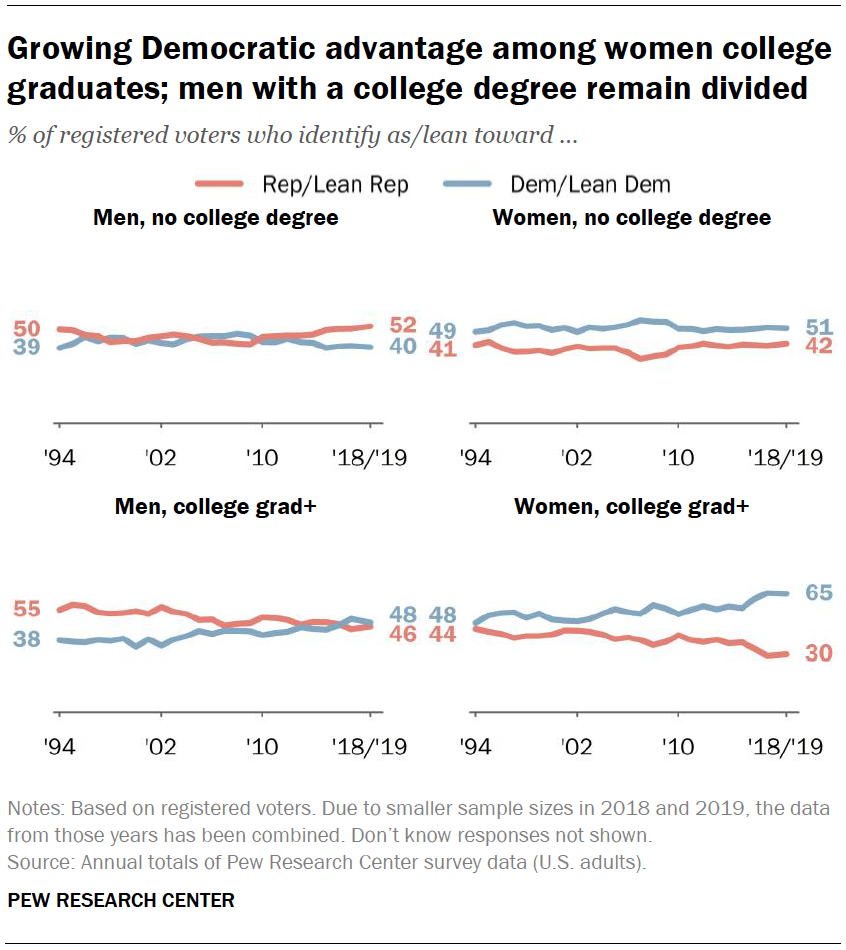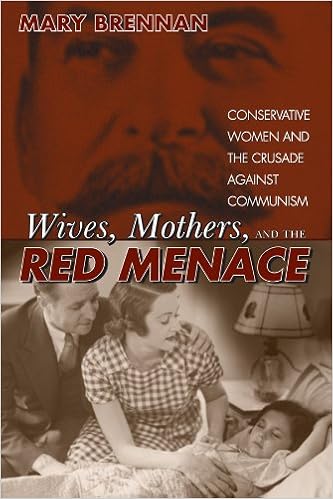tijd
in
puppet_djt
Коня на скаку
Only the coolest thing ever.
This evening, Smolevichi, Belarus pic.twitter.com/zGESaKYwk4
- James Farro (@JF991) August 15, 2020
Многочисленные комментаторы не могут не отметить женское лицо протестов в Беларуси.
Marina, a 28-year-old musician who took part in the initial demonstration of women on Wednesday, said that prior to this year she had not been interested in politics, simply living her own life in parallel to the repressive state and not feeling restricted by it. However, she was energised by the campaign of Tikhanovskaya and disgusted at Lukashenko’s violent response.
“Now when I see his face, I can’t even explain the feeling. It’s something worse than hatred, it’s something black inside me I didn’t even know was there,” she said.
As shock turned to catharsis, Minsk on Thursday and Friday resembled a carnival, as large groups of women marched through the streets, and cars honking their horns in support provided a constant backdrop of noise.
https://www.theguardian.com/world/2020/aug/14/women-belarus-take-protests-into-their-own-hands
Женским было лицо прошлогодней бархатной революции в Пуэрто Рико.
Nine young women sat in front of an orange barricade separating them from police officers guarding La Fortaleza, the Puerto Rico governor's mansion. They wore silver duct tape across their mouths that read “renuncia,” calling for former Gov. Ricardo Rosselló and members of his administration to resign. All around them, femmes chanted, “soy pata, soy puta, pero nunca corrupta” - “I’m queer, I’m a slut, but never corrupt.” As night fell, a new group of female demonstrators lined up on top of a concrete barrier, using their shirts as face masks as they stared down officers in riot gear. This is what the Puerto Rican uprising that ousted the governor, a first on the island, and aims to expel political corruption and challenge colonialism looks like: young, queer, and women-led.
https://www.bustle.com/p/women-femmes-leading-the-puerto-rico-protests-on-their-permanent-revolution-18544005

Три женщины организовали движение Black Lives Matter, которое в итоге привело к самым массовым демонстрациям протеста в истории США https://blacklivesmatter.com/our-co-founders/
До этого крупнейшей акцией протеста стал Женский марш в январе 2017, на следующий день после инаугурации Трампа.

Политическая поляризация в Америке означает что люди редко меняют свои предпочтения. Крупнейший сдвиг в последние годы произошел среди женщин с высшим образованием. Они стали ключевой прослойкой населения, которая привела демократов к победе на выборах в Конгресс в 2018 и грозит сыграть похожую роль на выборах 2020.
LET’S DO THIS #BidenHarris2020 pic.twitter.com/zjOsNAZSqQ
- shauna (@goldengateblond) August 11, 2020
Камала Харрис в качестве кандидата в вице-президенты добавляет очков.
Among women, 60% said they have a favorable view of Harris, compared with 53% who felt the same way about Biden. Women are the dominant force in American elections: they make up a bigger proportion of the U.S. electorate than men, and a surge in support for Democrats among white, college-educated women helped the party retake the U.S. House of Representatives in 2018.
https://www.reuters.com/article/us-usa-election-harris-poll-exclusive/exclusive-harris-could-help-biden-with-women-young-voters-maybe-some-republicans-too-reuters-ipsos-poll-idUSKCN25901M

Но уместно помнить, что женщины внесли вклад в историю не только прогрессивными, но и консервативными движениями. Помимо Филис Шлафли с ее Eagle Forum или Нелли Грэй с ее “March for Life” была ещё, например, такая организация, как “Minute Women”, которая мобилизовала домохозяек 1950ых на борьбу с коммунизмом.
Founded in 1949 by Suzanne Stevenson, the Minute Women of the USA quickly spread across the country. By 1952, Stevenson bragged that her original Connecticut-based group had grown to include chapters in twenty-seven states. The platform of the national committee was very general. Promising “to preserve, protect and promote the Constitution of the United States ... and the freedom it guarantees to individual citizens,” Minute Women worked to “protect our country from Communism, Socialism, Fascism or collectivism in any form.” In response to what they perceived to be a malicious newspaper article, the Minute Women explained in their newsletter that their group constituted a “[c]rusade and not an organization.” New members paid a small fee and pledged only “to vote in every election.” Inspired by Stevenson and the Connecticut group, members of local chapters operated autonomously. This allowed women to focus on whatever problems seemed to threaten their particular neighborhood. To protect the organization, Minute Women were forbidden to “take action as a pressure group. They [were supposed to] act only as individuals.”
Even following these rules, however, Minute Women sometimes proved a formidable force. An article in their newsletter calling for letters to congressmen, the president, local school board members, or religious leaders could generate thousands of pieces of mail seemingly overnight. Moreover, because many Minute Women were housewives with school-age or older children, they had the time to attend meetings, ask questions, and research the backgrounds of individuals or books they found problematic. Rapid dissemination of information through a national network allowed concerned members to attend meetings or write protest letters armed with information. The Minute Women appeared to act as individuals rather than as an organization, but the results of their actions indicated the power of their cooperation and coordination.
https://www.jstor.org/stable/j.ctt1d8h9s3.6
Первое собрание, с которого началось John Birch Society в декабре 1958, состоялось в Индианаполисе в доме Маргарит Дайс, вице-президента “Minute Women”. С тех пор многие из ей подобных женщин с энтузиазмом влились в ряды берчеров.
Robert Welch asked 12 men to attend a meeting at the home of Miss Marguerite Dice of 3650 Washington Blvd in Indianapolis on Monday and Tuesday, December 8 and 9, 1958. Dice was the National Vice-Chairman of Minute Women of the U.S.A., Inc.
Eleven men accepted the invitation. The 11 are listed below. The asterisked names are the men who later accepted positions on the JBS National Council.
*T. Coleman Andrews (Richmond VA)
*Laurence E. Bunker (Wellesley Hills MA)
*William J. Grede (Milwaukee WI)
William R. Kent (Memphis TN)
*Fred C. Koch (Wichita KS)
*W.B. McMillan (St. Louis, MO) - McMillan was the first person to become a JBS member after founder Robert Welch
*Revilo P. Oliver (Urbana IL)
*Louis Ruthenburg (Evansville IN)
Fitzhugh Scott, Jr. (Milwaukee, WI)
*Robert W. Stoddard (Worcester, MA)
*Ernest W. Swigert (Portland OR)
https://sites.google.com/site/ernie1241/

Среди женщин, вышедших из "Minute Women" и JBS, особое место занимает Джоэнн Херринг, светская львица из Хьюстона. Мало найдется людей, которые по своей личной инициативе внесли столь серьезный вклад в победу над коммунизмом и другие мировые события.
SOSEBEE: Now, part of this joy of getting to interview you is you get to clear things up and misconceptions sometimes. And, in [George] Crile's book [Charlie Wilson's War], that he talks about, he seems to suggest, and this is part of implication, that it was your friend Sandra Hovis who actually led you to this anti-communism. My suspicion always is that's not the case. So . . .
HERRING: I loved Sandra. She was one of my best friends. And her mother was a brilliant woman. And she was one of the Minute Women [one of the largest of a number of anti-communist women's groups that were active during the 1950s and early 1960s]. And actually, a Mrs. Lyon and Sandra's mother, they were all part of that. And so they, what they did is invite some young women to come and join them. And that's when I began to learn, you know, about the communists. And I'm very proud of being a Minute Woman. They are so very misunderstood. And in the movie they bring that up. Well, you know what, the Minute Women did, and the John Birch Society [another well-known anti-communist organization]? They ask you to read. Just to read what was going on. And if you felt that it was important and it should be changed, some of the laws or what was going on in Washington or what you saw in world affairs, to write a letter. I don't really think that's very compromising.
SOSEBEE: Doesn't seem to be, does it?
HERRING: [Laughs.] But you see, because they began to take on some very big issues, then the whole idea was to malign them and destroy them, which they did. And, then, at one point the John Birch Society went a little too far to the right, and they wanted to impeach [Supreme Court Chief Justice Earl Warren] ... which was probably a good idea, but awfully hard to do. And they ruined themselves because they were so very attacked.
http://www.sfasu.edu/heritagecenter/5377.asp
Роль Херринг в кино блестяще исполнила Джулия Робертс.
Wilson came under the influence of a remarkable, rabidly conservative Houston woman in her mid-40s, Joanne Herring. They later fell in love, although they never married. She had a reputation among the rich of the River Oaks section of Houston as a collector of powerful men, a social lioness and hostess to her fellow members of the John Birch Society. She counted among her friends Ferdinand and Imelda Marcos, dictator and first lady of the Philippines, and Yaqub Khan, Pakistan’s ambassador to Washington, D.C., who got Herring named as Pakistan’s honorary consul for Houston.
In July 1977, the head of Pakistan’s army, Mohammed Zia-ul-Haq, seized power and declared martial law, and in 1979, he hanged Zulfikar Ali Bhutto, the president who had promoted him. In retaliation, Carter cut off U.S. aid to Pakistan. In 1980, Herring went to Islamabad and was so entranced by Zia and his support for the Afghan freedom fighters that on her return to the United States, she encouraged Wilson to go to Pakistan. There he met Zia, learned about the Afghan moujahedeen and became a convert to the cause. Once Reagan replaced Carter, Wilson was able to restore Zia’s aid money and added several millions to the CIA’s funds for secretly arming the Afghan guerrillas, each dollar of which the Saudi government secretly matched.
Although Wilson romanticized the mountain warriors of Afghanistan, the struggle was never as uneven as it seemed. Pakistan provided the fighters with sanctuary, training and arms and even sent its own officers into Afghanistan as advisors on military operations. Saudi Arabia served as the fighters’ banker, providing hundred of millions with no strings attached. Several governments, including those of Egypt, China and Israel, secretly supplied arms. And the insurgency enjoyed the backing of the United States through the CIA.
Wilson’s and the CIA’s greatest preoccupation was supplying the Afghans with something effective against the Soviets’ most feared weapon, the Mi-24 Hind helicopter gunship. The Red Army used it to slaughter innumerable moujahedeen as well as to shoot up Afghan villages. Wilson favored the Oerlikon antiaircraft gun made in Switzerland (it was later charged that he was on the take from the Zurich-based arms manufacturer). Avrakotos opposed it because it was too heavy for guerrillas to move easily, but he could not openly stand in Wilson’s way. After months of controversy, the Joint Chiefs of Staff finally dropped their objections to supplying the American Stinger, President Reagan signed off on it, and the “silver bullet” was on its way. The Stinger had never before been used in combat. It proved to be murderous against the Hinds, and Soviet President Mikhail S. Gorbachev decided to cut his losses and get out altogether. In Wilson’s postwar tour of Afghanistan, moujahedeen fighters surrounded him and triumphantly fired their missiles for his benefit. They also gave him as a souvenir the stock from the first Stinger to shoot down a Hind gunship.
The CIA “bluebloods” fired Avrakotos in the summer of 1986, and he retired to Rome. Wilson became chairman of the Intelligence Oversight Committee, at which time he wrote to his CIA friends, “Well, gentlemen, the fox is in the hen house. Do whatever you like.” After retiring from Congress in 1996, he became a lobbyist for Pakistan under a contract that paid him $30,000 a month. Meanwhile, the United States lost interest in Afghanistan, which descended into a civil war that the Taliban ultimately won. In the autumn of 2001, the United States returned in force after Al Qaeda retaliated against its former weapon supplier by attacking New York and Washington. The president of the United States went around asking, “Why do they hate us?”
https://www.latimes.com/archives/la-xpm-2003-may-25-bk-johnson25-story.html

Governments by their nature are risk-averse, agents of the status quo. Only living, breathing, passionate people are agents of transformation, people such as Joanne Herring, Charlie Wilson, and Gust Avrakatos. It took a great anthropologist, rather than a political scientist, Margaret Mead, to grasp and state this law of nature: "Never doubt that a small group of thoughtful, committed citizens can change the world. Indeed, it is the only thing that ever has."
https://www.forbes.com/sites/ralphbenko/2011/12/26/the-fall-of-the-u-s-s-r-twenty-years-ago-beauty-killed-the-beast/